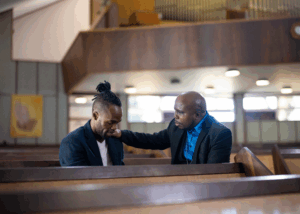Want to plan an event?
Let us help you bring your vision to life with flexible spaces, lodging, and support tailored to your group’s needs.
Written by Rev. Dr. Heather Henson, Director of Quest
Several years ago, a young adult who had taken one of my classes at Kairos University also served on my staff at Quest. While the young adult was a student, we met on Zoom to talk about academic work and life in seminary. The following summer, that young adult joined my summer team. Midway through the summer, the staff member said to me, “During the school year, you always said you cared about your students, and I didn’t believe you. But now that I’m serving on your summer staff, I can tell that you really do care about me, the rest of the team, and everyone who comes to Quest.”
This comment still stuns me. I think it’s so revealing of the nature of our humanity. And if I’m honest, I can 100% relate.
Let’s be real for a moment. We live in a world where most of the people we interact with don’t care about us. Sometimes this is a blessing. If I trip and fall at the grocery store, I feel embarrassed. I remind myself, however, that no one in that store knows me, so I don’t need to feel embarrassed. It’s perfectly fine. I’m not that important. But also, there have been many seasons of life when I have felt invisible. When I have really wrestled with the weight of my insignificance.
Oh, people seem to want us. They want us to buy their products; they want us to sign up for their club or organization; they want us to participate in their activity, ministry, event, etc. But do people really care about us? The more I talk with people, the more it seems like this question is rather persistent.
Perhaps that is because relationships matter?
Perhaps it is relationships that create space for learning, formation, and flourishing?

There’s a great moment in scripture that might help us think about the impact of relationships. John 4:39–41 reads:
39 Many of the Samaritans from that town believed in him because of the woman’s testimony, “He told me everything I ever did.” 40 So when the Samaritans came to him, they urged him to stay with them, and he stayed two days. 41 And because of his words many more became believers. 42 They said to the woman, “We no longer believe just because of what you said; now we have heard for ourselves, and we know that this man really is the Savior of the world.”
Just sit with this passage for a minute. In fact, go back and read it from the beginning of John 4. Jesus sat down with this woman, and as a result of her feeling known and seen, his words hit differently. They aren’t words of condemnation. They are words of life from someone who cares deeply about her. And when she shares those words of life with people who know her, they want to hear more. When Jesus stays and is with them, many more come to new life because they feel known by him.
Yes, he is talking, but he is not simply spouting words and phrases from a place of power. He is with them… for two days!
Everything. Literally everything.
We’ve all heard a really great exegetical sermon. It might have even sparked a renewed passion or opened our minds to something that was previously hidden from view. The truth is, the impact of words that are spoken from a pulpit by someone who is relationally disconnected from a community will never match the impact of words shared by someone who knows and is with the community.
The sermon has power, and we see moments where Jesus preaches to large swaths of people. However, when we compare the Sermon on the Mount to the conversations with disciples or the experience with the woman at the well, we can see the difference a relationship makes on those who are hearing.
Todd Still, President of Truett Seminary, put it this way, “The kingdom of God runs on relational rails.”
When a sermon comes from one who knows us, loves us, and is authentically with us in the discipleship process, it is heard through the filter of a relationship rather than the filter of a lecture.
Yes, the preparation we do for our sermons is important. However, I would suggest that our sermons must be equally influenced by the life we are living with the community we serve and the relationships that give shape to that community. Finding the right words to say is about more than reading, writing, and studying. While those are important, the words will never be “right” if they are not surfaced through authentic relationships with those we serve.
How invested are we in the lives of the people who will hear our sermon?
What do we think will happen if people actually feel seen, heard, and known?
What will happen if I feel seen, heard, and known?